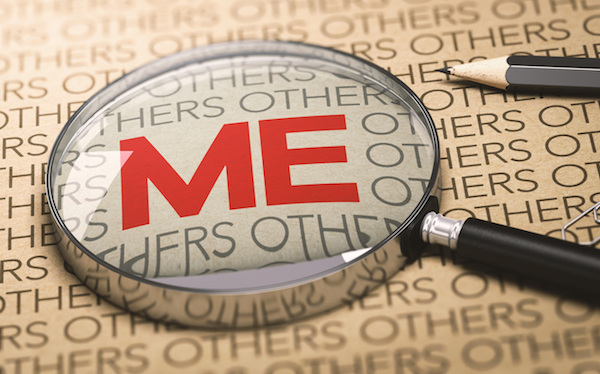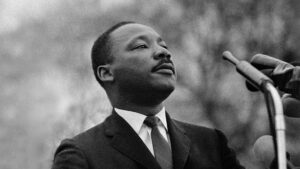
By Thomas M. O’Toole, Ph.D.
We quickly learned that Richard was a horrible juror for us in the trucking accident case we were working on. We had decent evidence that the plaintiff had fallen asleep behind the wheel and veered into our truck, but Richard wasn’t having it. As soon as this issue came up in deliberations, he jumped in, stating, “I don’t care what he says. We have all been on the road with truck drivers and they routinely fly over into the other lane without any notice at all.” This quote was so powerful because what Richard was really saying was, I don’t care what the evidence in this case is because I’m going to go with my own personal experiences instead. Fortunately, this was only a mock trial, but it highlights an important reality about jury decision-making: it is an ego-centric process, and the research shows it is only getting worse with the emergence of the millennial juror.
David Foster Wallace authored one of my favorite psychological insights of all time:
“Everything in my own immediate experience supports my deep belief that I am the absolute center of the universe; the realest, most vivid and important person in existence. We rarely think about this sort of natural, basic self-centeredness because it’s so socially repulsive. But it’s pretty much the same for all of us. It is our default setting, hard-wired into our boards at birth. Think about it: there is no experience you have had that you are not the absolute center of. The world as you experience it is there in front of YOU or behind YOU, to the left or right of YOU, on YOUR TV or YOUR monitor. And so on. Other people’s thoughts and feelings have to be communicated to you somehow, but your own are so immediate, urgent, real.”
I like this quote because it is not an indictment or criticism of humanity, but instead a useful recognition of the reality that we live in. The way we perceive and understand the world is inherently egocentric. Consequently, attorneys need to think about what their case theory means for jurors if they want to be persuasive and effective. Entire chapters of books could be written on this topic, but in this post, I want to focus on three ways in which attorneys should consider the egocentrism of jurors as they develop their case theories and trial presentations.
- Is the case theory consistent with the experiences and beliefs of your jury pool? Our personal experiences and beliefs are the most important filters for what we accept as true and reject as false. Numerous studies have found this, including the famous Emory study that found that our brains are programmed to reward us with a dopamine release when we find a way to take a conflicting situation and fit it to what we already believe about the world. Consequently, attorneys need to craft case theories that fit with the experiences and beliefs of the jury pool. If an attorney makes an argument that is consistent with the personal experiences or beliefs of the jurors, that argument will seem more true and real to those jurors.
- What can jurors feel good about finding in favor of your client? We make decisions that we can feel good about. This is a basic fact of decision-making. Research has shown over and over again that the more gratifying decision will always win out. It’s why it’s so easy to slip and eat the chocolate cake when we’re trying to lose weight. The immediate gratification puts up too much of a struggle. Similarly, attorneys need to identify the gratification that comes with jurors finding in favor of their client. What can the jurors feel good about? The answer should be clearly stated in a single statement. What is the psychologically-satisfying statement that jurors make when they find in favor of the client? If the attorney cannot state it in a single sentence, how can he or she expect the jurors to know what it is?
- What have you done to make it easy on your jurors? My second favorite psychological insight of all time comes from Nobel Prize-winning psychologist Daniel Kahneman. He says this: “when faced with a difficult question, we often answer an easier one instead, usually without noticing the substitution.”Humanity seems hardwired to take the easy path, so it’s important for attorneys to create an easy path for jurors. What’s the simple formula for resolving the case, and how can it be presented in the simplest fashion possible? About a year ago, I was enjoying a beer with a good friend who is a trial attorney. He was telling me about a difficult case he was working on, and why he thought they would win. It involved a long, drawn-out explanation. As a joke, I stopped, pulled out my phone, set the timer, and told him that, if he can’t explain to me why he should win in thirty seconds or less, he is probably going to lose. It was a fun game between two friends, but I’ve always thought I should incorporate this same activity into our strategy development sessions with clients. Attorneys should adopt a similar exercise as a litmus test for whether or not they have sufficiently simplified their case theory.
As I previously noted, I could write a few book chapters on this topic, but I’ve highlighted some fundamental issues to think about as attorneys move towards a better understand of jury economics.




